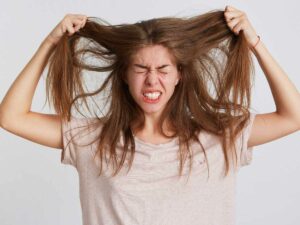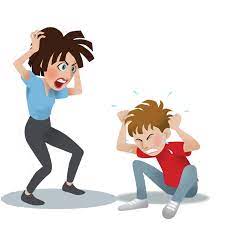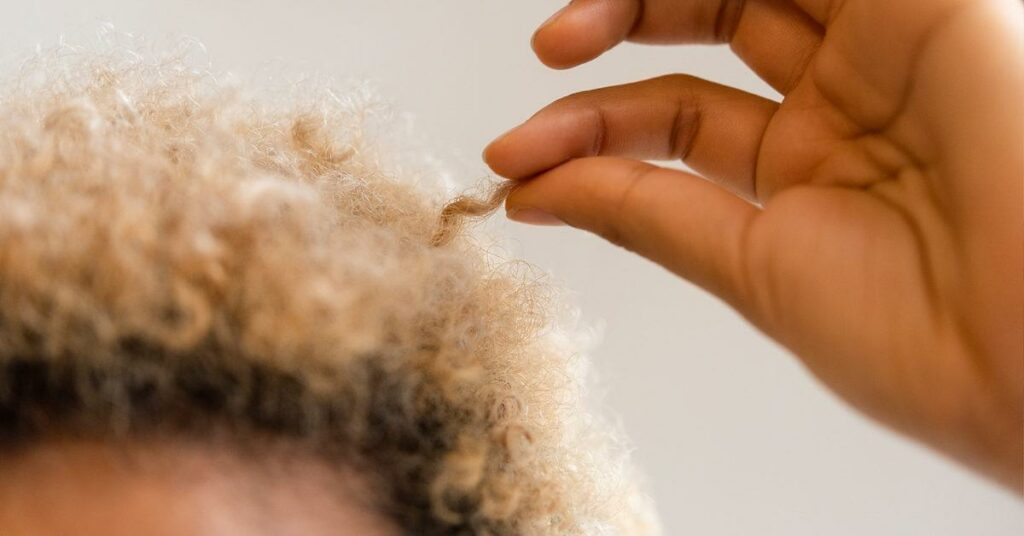Do you sometimes feel like you can’t control your own hands? Do you find yourself pulling out your hair without realizing it? If so, you may be suffering from trichotillomania. Trichotillomania is a disorder that causes people to pull out their hair compulsively. It can be very difficult to live with this condition, and it can also be difficult to diagnose. In this blog post, we will discuss the connection between trichotillomania and ADHD, and we will also offer some tips for how you can manage this condition.
Contents
Defining Trichotillomanic And ADHD
 Both trichotillomania and ADHD are disorders that can be difficult to define. Trichotillomania is an impulse control disorder characterized by the repetitive pulling of one’s hair, resulting in hair loss. ADHD, on the other hand, is a mental disorder that is characterized by problems with focus, impulsivity, and hyperactivity.
Both trichotillomania and ADHD are disorders that can be difficult to define. Trichotillomania is an impulse control disorder characterized by the repetitive pulling of one’s hair, resulting in hair loss. ADHD, on the other hand, is a mental disorder that is characterized by problems with focus, impulsivity, and hyperactivity.
Moreover, both disorders share some common symptoms. For instance, people with trichotillomania may have a hard time resisting the urge to pull their hair, and may also fidget or squirm in their seats. Similarly, people with ADHD may also have trouble focusing and may be easily distracted or impulsive.
It’s believed that there may be a connection between the two disorders. One study found that people with ADHD are more likely to also have trichotillomania. Additionally, both disorders tend to run in families, which suggests that there may be a genetic link.
More often, two mental disorders are seen as co-occurring conditions, meaning that someone may be diagnosed with both ADHD and trichotillomania. However, it’s important to note that not everyone who has one disorder will also have the other. But chances are high most of the time.
Symptoms Of Co-occurring Conditions
There are a few key symptoms that often occur when someone has both ADHD and Trichotillomania. These include:
- People with both conditions tend to be perfectionists.
- They may have a very hard time completing tasks
- Often have difficulty controlling their impulses
- It May be very impulsive
- Can be quite easily distracted
- Have difficulty focusing on one task for an extended period of time.
These symptoms can often lead to a lot of frustration and anxiety. It can feel like you’re never good enough and that you’ll never be able to complete anything. This can lead to a vicious cycle of anxiety and hair-pulling.
Moreover, the signs and symptoms can differ depending on the individual. It’s important to be aware of how these conditions manifest for you specifically. Only then can you begin to develop a plan to manage both conditions.
Link Between Trichotillomania And ADHD
 Although the link between trichotillomania and ADHD isn’t fully understood, there are a few theories.
Although the link between trichotillomania and ADHD isn’t fully understood, there are a few theories.
One theory is that people with ADHD are more likely to have impulsive behaviors, like hair-pulling. Also, people with ADHD may be more likely to have sensory processing issues. For example, they might feel the need to pull their hair because it feels good or helps them focus.
Another theory is that people with ADHD are more likely to have anxiety and mood disorders, which can also lead to hair-pulling. In fact, excessive hair-pulling can interact with ADHD symptoms and make them worse.
Also, it is believed that people with ADHD may be more likely to have sensory processing issues. This means that they’re not able to process information from their senses effectively. For example, they might feel the need to pull their hair because it feels good or helps them focus.
If you have both conditions, it’s important to get treatment for both. Treating one condition can help lessen symptoms of the other. Also, it’s important to find a therapist or doctor who is familiar with both conditions. That way, they can create the best treatment plan for you.
What Are The Consequences Of It?
It is believed that both conditions can have a negative impact on life. Some of the consequences include:
Poor self-esteem and self-image
People with ADHD are more likely to develop anxiety and depression. And, in a similar way, people with trichotillomania often feel ashamed and embarrassed about their hair pulling. As a result, both conditions can lead to low self-esteem and a negative self-image.
Problems with relationships
Both ADHD and trichotillomania can make it difficult to have healthy relationships. People with ADHD may have trouble with impulsivity and may say or do things without thinking. This can lead to conflict with friends and family members. People with trichotillomania may avoid social situations for fear of being caught hair pulling. Or, they may pull their hair in front of others, which can be off-putting.
Trouble at school or work
If left untreated, both ADHD and trichotillomania can have a negative impact on school or work performance. People with ADHD may have trouble paying attention or staying organized. This can lead to poor grades or getting fired from a job. People with trichotillomania may miss work or school because they’re too embarrassed to go out in public. Or, they may pull their hair while they’re at work or school, which can be distracting to others.
Risky behaviors
 It is not uncommon for people with ADHD to engage in risky behaviors. This may include driving recklessly, engaging in unsafe sex, or using drugs or alcohol. People with trichotillomania may also engage in risky behaviors. For example, they may pull their hair so hard that they damage the hair follicles. This can lead to infection or permanent hair loss.
It is not uncommon for people with ADHD to engage in risky behaviors. This may include driving recklessly, engaging in unsafe sex, or using drugs or alcohol. People with trichotillomania may also engage in risky behaviors. For example, they may pull their hair so hard that they damage the hair follicles. This can lead to infection or permanent hair loss.
So, these negative consequences can have a significant impact on a person’s life. If you or someone you know is struggling with ADHD or trichotillomania, it’s important to seek help from a mental health professional. With treatment, these conditions can be managed and the negative consequences can be minimized.
How To Manage Trichotillomanic And ADHD?
When you live with both Trichotillomania (TTM) and Attention Deficit Hyperactivity Disorder (ADHD), it can feel like you’re constantly managing two full-time jobs. So, it is important to manage both conditions in order to live the best life possible.
Here are some tips:
Get educated about your condition
This is the primary step in managing any condition. When you understand your triggers and how your conditions affect you, it is easier to find treatments that work for you. There are many resources available online and in libraries that can help you learn more about TTM and ADHD. You can also talk to your doctor or a mental health professional to get started.
Talk to your loved ones
When you have TTM and ADHD, it is important to have a support system. Talk to your loved ones about your conditions and how they affect you. This will help them understand what you are going through and how they can best support you. Moreover, talking about your conditions can help to reduce any shame or embarrassment that you may feel.
Practice meditation
Meditation is a great way to help reduce stress and anxiety. It can also help to increase focus and concentration. In fact, it is believed that meditation can help to improve symptoms of ADHD. And there are various types of meditation that you can practice. So, if you’re looking for a way to help ease your trichotillomania and ADHD symptoms, then consider giving meditation a try.
Exercise regularly
Exercise is a great way to reduce stress, improve mood, and increase energy levels. It is important to find an exercise routine that you enjoy and that you can stick to. But even if you don’t enjoy exercise, it is still important to do it regularly. Exercise can help to improve symptoms of both trichotillomania and ADHD.
Eat a healthy diet
A healthy diet is important for everyone, but it is especially important for people with trichotillomania and ADHD. Eating a healthy diet can help to improve mood, increase energy levels, and reduce stress. It is also important to make sure that you are getting enough nutrients. Because this is a condition that can lead to nutritional deficiencies.
Distract yourself
 It is very important in moments of temptation to have a list of things that you can do to distract yourself. This could include reading, going for a walk, listening to music, or anything else that you enjoy. The important thing is to find something that will help take your mind off of the urge to pull your hair. Similarly, in ADHD people tend to need to be constantly stimulated. So, it is important to find activities that will help keep you occupied and distracted from any negative thoughts or urges.
It is very important in moments of temptation to have a list of things that you can do to distract yourself. This could include reading, going for a walk, listening to music, or anything else that you enjoy. The important thing is to find something that will help take your mind off of the urge to pull your hair. Similarly, in ADHD people tend to need to be constantly stimulated. So, it is important to find activities that will help keep you occupied and distracted from any negative thoughts or urges.
So, these are some of the ways that you can help ease the symptoms of trichotillomania and ADHD. If you or someone you know suffers from either of these conditions, then please seek professional help.
Professional Treatment Options
Sometimes, people with trichotillomania also have other mental health conditions, like ADHD. This can make it hard to manage both disorders at the same time. If you think you might have both ADHD and trichotillomania, talk to your doctor about getting a professional evaluation.
There are a few different types of treatment for trichotillomania, and what works for one person might not work for another. However, some of the common treatment options include:
Cognitive-behavioral therapy
This type of therapy can help you change the thoughts and behaviors that contribute to trichotillomania. Also, this is considered a “first-line” treatment, which means it’s one of the most recommended options. CBT works best when it’s tailored to your specific needs. As there are different types of CBT, be sure to ask your therapist which one they think would be best for you.
Habit reversal training
Habit reversal training is another type of cognitive-behavioral therapy. It helps you become more aware of when and how you engage in trichotillomania behaviors. This awareness can help you find other ways to cope with your urges. It is believed that HRT works best when it’s combined with other treatment methods, such as CBT.
Medications
There are no medications specifically approved for treating trichotillomania. However, some people find that certain medications can help reduce their symptoms. For example, antidepressants and anti-anxiety medications may be helpful. If you’re interested in trying medication, talk to your doctor about the risks and benefits. Some of the examples include:
- Selective serotonin reuptake inhibitors (SSRIs)
- Tricyclic antidepressants (TCAs)
- Monoamine oxidase inhibitors (MAOIs)
- L-methyl folate
- N-acetylcysteine
- Topiramate
So, medications are considered another potential “first-line” treatment for trichotillomania.
Other treatments
 There are a few other potential treatments for trichotillomania, but they’re not as well-studied as CBT and medications. Some of these other options include:
There are a few other potential treatments for trichotillomania, but they’re not as well-studied as CBT and medications. Some of these other options include:
- Biofeedback
- Electroconvulsive therapy (ECT)
- Neurofeedback
- Transcranial magnetic stimulation (TMS)
- Herbal remedies
If you’re interested in exploring one of these other treatment options, talk to your doctor or therapist to see if it’s right for you. Moreover, it’s important to remember that these treatments have not been proven to be effective for everyone. But still, they might be worth a try if other treatments haven’t worked for you.
When it comes to professional treatment options, there are a few different types of treatment for trichotillomania. And what works for one person might not work for another. But, with the right treatment, you can manage your symptoms and live a healthy life.
Conclusion
To conclude, trichotillomania and ADHD are two disorders that are very much interconnected. If you or your child suffer from either one of these conditions, it’s important to seek professional help. Because both conditions are really rooted in underlying emotional issues, the best course of treatment is usually some form of therapy.
For more information, please contact MantraCare. ADHD is a neurodevelopmental disorder characterized by difficulty in paying attention, hyperactivity, and impulsivity. If you have any queries regarding Online ADHD Counseling experienced therapists at MantraCare can help: Book a trial ADHD therapy session


